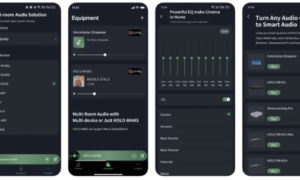A lot of fuss around Artificial intelligence (AI) and machine learning (ML) has mostly centered on robotics, but evidence suggests that the financial sector is doing the most to harness these tools. The widespread application of robo-advisors is an excellent example of this trend. Banks are also using AI to detect fraud and market manipulation, and hedge funds are using it to shape trading strategies.
Cryptocurrency is the new kid on the finance block. Since the 2017 crypto-boom, millions have and continue to hop onto the cryptocurrency bandwagon. This is not an indication of an increased understanding of the technology. Most people still have a vague understanding of how cryptocurrency works as an investment vehicle. An abundance of these coins, their fluctuating valuations and lack of faith in them by seasoned investors do not help the situation.
While stock message boards like Investors Hangout could help the average investor analyze the wild crypto-market, it takes the power of AI to navigate these murky waters profitably. AI has the potential to impact crypto investing in significant ways.
Forecast and Predictions
To combat the volatility of cryptocurrency valuations developers have created models based on neural networks that are becoming increasingly accurate at making predictions in the crypto-markets. They can analyze the prevailing cryptocurrency exchange rates to come up with market forecasts by the minute. The significance of the forecast depends on many variables including the amount of computation power, the sophistication of mathematical models employed and the quality and quantity of data analyzed.
High-Frequency Trading
The goal of high-frequency trading is to capitalize on price spikes. This program trading platform uses the power of AI to analyze technical indicators across multiple markets and execute orders across various exchanges in response to market-moving trades. Traders can custom design a dataset of parameters they want the software to base its decision making on. They can refine these settings and enlarge the dataset to improve the AI’s performance.
Sentiment Analysis
Sentiment analysis involves analyzing data from blogs, articles, social media, stock message boards, video transcripts, and many other sources to understand the market sentiments on a certain topic. Emotion can be the biggest asset or handicap for any trader and its influence on investment decisions is undeniable. By analyzing these emotions, AI can direct investments toward profitable trends.
Fundamental analysis
Stocks and cryptocurrency are similar in many ways one being the use of fundamental analysis in making trading decisions. Similar to stock, coin valuation involves gauging qualitative and quantitative factors for example analysis of macroeconomic factors in a particular crypto-company or the market in its entirety. AI is faster and more accurate at fundamental analysis compared to human traders.
Final thoughts
To gain a competitive edge, investors have always been quick to adopt the latest technologies and AI is no exception. As its use spreads deeper into finance, many questions have been raised about supervision and ethics. Used in the right way, AI can significantly improve the financial situation of many people in society, but if misused, it will only amplify the class difference between the tech savvy and tech inept.



































